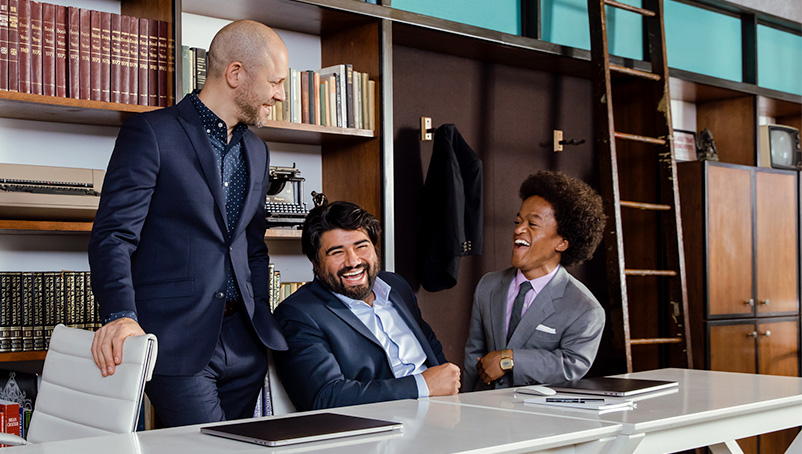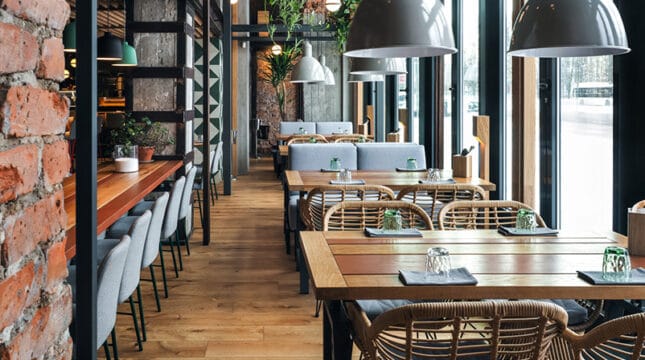Jump ahead to know:
What is a commercial property lease?
A commercial property lease is a legally binding agreement that lets you rent commercial property as a small business owner. It outlines your rights and responsibilities and comes with rules, often including the need for commercial lease insurance.
A lease agreement usually covers a short-term rental period. You don’t gain any ownership, but you may be on the hook to pay rent plus other expenses, such as taxes, utilities and a security deposit.
Your commercial property lease will also likely cover rental terms, such as rules regarding subletting and alterations.
How much does a commercial property lease cost?
The price of a commercial lease varies.
Location plays a major role, especially in busy cities where prime areas frequently command higher prices. The size of the space you require and the local demand for commercial properties can also impact the cost.
It also depends on what type of lease you have. For instance, according to Investopedia, a triple net lease usually has lower rent because the tenant covers costs like maintenance and repairs, property taxes and commercial property insurance premiums.
Before committing to a commercial property lease, consider your budget and financial capacity.
Consider additional costs such as maintenance fees, utilities and renovations. When you know how much you can afford, you can steer clear of potential financial strain. You’ll also be better positioned to negotiate with landlords or real estate agents.
What’s the difference? Commercial property lease vs. residential property lease
The difference between a residential and commercial lease is that commercial leases are designed for business activities — such as retail stores, offices or warehouses — and residential leases are for private residences.
In addition, commercial property leases tend to be more complex and customizable compared to residential agreements. There’s also room for tenant/landlord negotiations regarding rent, lease duration, maintenance responsibilities, and other factors specific to your company.
You’ll typically find fewer legal protections for commercial tenants, too. This means small business owners must carefully review and negotiate the terms of their commercial lease to ensure the best protection for their business.
Commercial property lease terms and definitions
If you don’t know the difference between “common area maintenance” and a “contents insurance clause,” learn the meaning of terms commonly found in commercial property leases before you sign. Nolo has a great list of terms, including:
Parties: The names of the landlord and the tenant. Verify your business name carefully. If you’re an LLC, make sure it’s listed accurately.
Premises clause: A description of the space, building or address you’re leasing.
Use clause: A limit on how tenants can use the space or what business they can operate there. Most agreements include a use clause, but you’ll want to watch for strict restrictions.
Insurance clause: Landlords can require various insurance policies to cover the risks of leasing a space. It may be necessary to purchase commercial property insurance, general liability insurance, rental interruption insurance and other coverages.
Term: The length of your lease, including the start and end dates. Your document should specify when you can occupy the space to set up, when your rent is due, and when you need to obtain insurance.
Rent: The monthly payment to lease the space. Look carefully at this section for operation costs, after-hours services, HVAC expenses, and fees for common area maintenance.
Security deposit: An amount given to the landlord in case you can’t pay rent or other financial obligations. You may be able to get a Letter of Credit from your bank in lieu of a security deposit.
Changes and improvements: Your agreement with the landlord about making custom changes to the space, who will pay for it and when it will be completed.
Business leases can contain several other important clauses that small business owners should know before finalizing any agreement. Check the language clauses about the option to renew or sublet, breaking the lease, dispute resolution methods, attorney fees, and the use of personal guarantors.
The 7 types of commercial property leases
These types of commercial property leases offer distinct responsibilities for the landlord and the tenant. Choose the type that best suits your business model.
1. Gross lease. In this type of commercial property lease, the landlord typically covers all operating expenses, including property taxes, insurance and maintenance costs. A modified gross lease may require the tenant to reimburse the landlord for some expenses.
2. Net lease. This arrangement requires the tenant to pay a portion or all operating expenses on top of the base rent, such as property taxes, insurance and maintenance costs.
3. Single net lease. The tenant pays rent and property taxes.
4. Double net lease. The tenant pays rent, property taxes and insurance premiums.
5. Triple net lease. The tenant pays rent, property taxes, insurance premiums, plus structural maintenance and repair costs.
6. Percentage lease. These are common for retail spaces. The tenant pays a base rent plus a percentage of their sales. It can benefit the landlord, and the tenant since the landlord gets a steady income and the tenant’s rent adjusts when they have more revenue to spend.
7. Ground lease. This allows tenants to rent land, develop property and construct buildings or improvements. This agreement allows tenants to access a prime location without purchasing the land outright. A ground lease typically lasts 50-99 years, so make sure you’re in it for the long haul.
How NEXT helps you get insurance for your commercial property lease
When leasing a commercial property, the right small business insurance is crucial. Your business is your investment, and it needs protection from the financial losses of unexpected events.
NEXT is 100% dedicated to small business owners. Our policies cater to new businesses, sole proprietors and LLCs.
By tailoring our policies to fit your unique needs, you get the coverage that best aligns with your commercial lease and business goals.
In less than 10 minutes, you can apply online, get a quote, compare options and purchase coverage. You’ll get a certificate of insurance immediately after payment. And you can manage your policy via web or app 24/7.
Start your free instant quote with NEXT.





